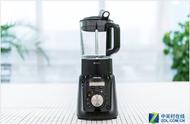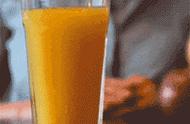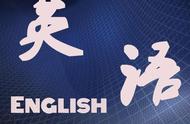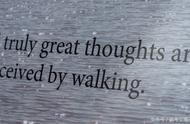概念
比较级用于两个人或物之间的比较,表示“较……”或“更……”,标志词“than”,通常用于两者之间的比较。
最高级用于三者或三者以上的人或物之间的比较。
规则变化
1、一般直接在词尾加er;est.
tall---taller---the tallest
great---greater---the greatest
2、以字母e结尾的直接加r;st
nice---nicer---the nicest
fine---finer---the finest
3、以辅音字母加y结尾的形容词变y为i再加er;est
busy---busier---the busiest
heavy---heavier---the heaviest
4、重读闭音节结尾的单音节词,若词尾只有一个辅音字母时,须双写这个辅音字母再加er;est
big-bigger-the biggest
hot -hotter-the hottest
5、少数以-y,-er,-ow, -ble结尾的双音节词,末尾加-er,和-est(以-y结尾的词,如-y前是辅音字母,则变y为i,再加-er和-est;以-e结尾的词仍只加-r和-st)
happy—happier—happiest
clever—cleverer—cleverest
5、多音节和部分双音节词在词前加more;most
easily--more easily--most easily
beautiful--more beautiful--the most beautiful
特殊点:
(1)有些单音节词的比较等级常用more和most,如glad,fond,shy,sly(但like只可用more和most)。
eg.I am not more glad than you.
我可没像你那样高兴。
Uncle Jack was more like a book of reference to my father.
杰克大叔对我父亲来说真是一部参考书。
(2)有些单音节词用-er和-est或more和most皆可,如free,clear等。
eg. I'm clearer/more clear about it than before.
对这事,我比以前更清楚了。
(3)有些双音节词用-er和-est或more和most皆可,在当代英语中似有多用more和most的趋势,如:secure,cruel,pretty,lively等。
eg.She looks prettier/more pretty with long hair than with short hair.
她留长发比留短发漂亮。
The patient seems a little livelier/more lively this morning.
这位病人今天早上精神似乎好些了。
(4)分词形容词的比较等级一律用more和most。
eg.I felt more tired this morning.
今天上午我感觉比较疲倦。
Skiing is more exciting than skating.
滑雪比滑冰更激动人心。
The report is most alarming.
这个报告最为扰乱人心。
英语里有些形容词的比较等级的变化是不规则的。
good well
better best
bad ill
worse woset
many much
more most
little few
less least
far
farther farthest或further futheet
old
older oldest 或elder eldest
late
later latest 或latter last
(5) 形容词前可加less和least,表示“较不”和“最不”。
eg.Short sight is less common among the young students in this country.
近视在这个国家的青少年学生中较为少见。
The flaw in this stamp makes it less valuable.
这张邮票因为有点瑕疵,不那么值钱。
She's no less active than she used to be.
她和以往一样活跃。
He has less strength than I have.
他的力气比我小。
It is less cold than it was yesterday.
天气没有昨天那样冷。
比较级表示法
(1)“A 谓语 as 形容词原级 as B”表示A和B同等程度。
eg.I'm not as tall as he.
我没有他高。
The march of events is as fast as we thought.
事情的发展就如我们所料的那样快。
(2)“A 谓语 形容词比较级 than B”表示A超过B。
eg.The first is better than the second.
第一个比第二个好。
The doctor's fees were higher than we expected.
医生的酬金比我们预计的要高。
(3)“the 比较级…,the 比较级…”表示B随着A的增长程度而平行增长,译为“越…越…”。
eg.The busier I am,the happier I feel.
我越忙,越高兴。
The lazier you are,the poorer you will be.
你越懒,就越穷。
The more careful you are,the less mistakes you would make.
你越仔细,出错越少。
The more problems you think about,the cleverer you will become.
你考虑的问题越多,你就会越聪明。
(4)“比较级 and 比较级”表示“越来越…”。
eg.As he got older,he became more and more fond of comfort.
随着年龄的增长,他越来越喜欢安逸。
The summer is coming,it is getting hotter and hotter.
夏天来了,天气越来越热。
Things are getting better and better.
情况一天比一天好起来。
(5)A 谓语 倍数 as 形容词原级 as B
A 谓语 倍数 比较级 than B
A 谓语 倍数 the size/height/length/weight of B
eg.There are now five times as many schools in our town as in 1979.
我们城里的学校比1979年增加了4倍。
Asia is four times larger than Europe.
亚洲比欧洲大3倍。
This desk is twice the size of that one.
这张桌子是那张桌子的两倍大。
最高级表示法
(1) 形容词最高级用于三者或三者以上的比较, 其结构一般是“定冠词the 形容词最高级 表示范围的短语或从句”。
eg. She is the tallest among her classmates.
她在她同学之中是最高的。
He is the most honorable of men.
他是品行最为高尚的人。
This book is the most difficult that I have ever read.
这本书是我所读过的最难读的一本书。
(2) 形容词的最高级也可以用“形容词的比较级 than any other 单数名词”或“形容词的比较级 than any of the other 名词的复数”来表示。
eg. That city is larger than any other city in that country.
那座城市是该国最大的城市。
John is taller than any other boy in the class.
约翰比班上其他的男生都高。
He is more experienced than any of the other teachers in our school.
他是我们学校最有经验的老师。
(3) 形容词的最高级作表语,如果没有表示比较的范围或者说不与别的人或物进行比较,形容词的最高级前常常不加冠词。
eg.Pollution is most serious in this area.
这个地区的污染最严重。
Vegetables are best when they are fresh.
蔬菜新鲜的时候最好。
(4) 形容词的最高级前如果有物主代词,不再加定冠词。
eg.This is my best coat.
这是我最好的大衣。
She is doubtless my best friend.
她无疑是我最好的朋友。
I sent you my best wishes on this happy occasion.
在这快乐的时刻我向你致以最好的祝愿。
没有比较级和最高级的形容词
1、表示“完全”“特别”等意义的形容词。
complete 完全的 empty 空的
entire 整个的 excellent 优秀的
fatal 致命的 final 最终的
full 满的 hopeless 无望的
impossible 不可能 perfect 完美的
relative 相对的 total 完全的
universal 全体的 whole 整个的
3、表示“极限”“主次”等的形容词。
basic 基本的 chief 主要的
extreme 极端的 first 第一的
main 主要的 major 较大的
maximum 最大的 minimum 最小的
minor 较小的 primary 首要的
supreme 至上的 wonderful 极好的
4、表示“独一无二”的形容词。
mere 仅仅 only 仅有的
single 唯一的 unique 独特的
5、表示“强调”的形容词。
favourite 最受喜欢的 own 自己的
simple 纯粹的 very 正是的
6、表示“状态”的形容词。
alight 着火的 ashamed 羞耻的
asleep 睡着的 awake 醒着的
blind 瞎的 deaf 聋的
dumb 跛的 dead 死的
7、表示“性质”“材料”“国籍”等的形容词。
American 美国的 economic 经济的
false 错的 golden 金制的
illegal 非法的 scientific 科学的
sufficient 充足的 true 真实的
wooden 木制的 woolen 羊毛的
8、表示“时间”的形容词。
daily 每天的 weekly 每周的
present 目前的 future 将来的
9、表示“几何形状”等的形容词。
circular 圆形的 level 水平的 round 圆形的
square 四方的 straight 直的 hollow 空的
练习题
(一) 写出下列形容词与副词的比较级与最高级形式:
long___ ____ wide ____ ____ fat __ ___
heavy___ ____ slow ____ ____ few___ ___
brightly___ ____ bably ____ ___ far___ ____
quickly ___ ____ happy___ ___ unhappy__ ___
(二)用所给词的正确形式填空:
1. Of the two girls, I find Lucy the ____ (clever).
2. Gold(黄金) is ____ (little) useful than iron(铁).
3. My sister is two years _____ (old ) than I.
4. John’s parents have four daughters, and she is the ___ (young) child.
5. The ___ (cheap) bags are the not usually the best ones.
6. The short one is by far _____ expensive of the five.
7. The boy is not so ____ (interesting) as his brother.
8. Dick sings ____ (well), she sings ____(well) than John, but Mary sings____(well) in her class.
9. She will be much ____ (happy) in her mew house.
10. This dress is ____ that.(twice, as…as…, expensive)
(三)翻译句子:
1. 本书跟那本书一样有趣。
This book is _____ _____ _____ that one.
2. 你游泳没有你弟弟好。
You can’t swim _____ _____ _____ your brother.
3. 今天比昨天冷的多。
It is _____ ______ today______ it was yesterday.
4. 对这个故事我比另一个喜欢的多。
This story is _____ ______ ______ than that one.
5. 他比我大两岁。
He is _____ ______ ______ than I.
6. 这个故事不如那个有趣。
This story is _____ _____ _____ than that one.
7. 她的身体状况一天天好起来。
He is getting _____ ______ ______ every day.
8.他对英语越来越感兴趣。
He is becoming ____ ___ _____ ___ ____ English.
9.他吃的越多,人越胖。
The more he eats, the _______ he gets.
10.你的问题是两个中比较难的那个。
Your question is _______ ______ ______ of two.













